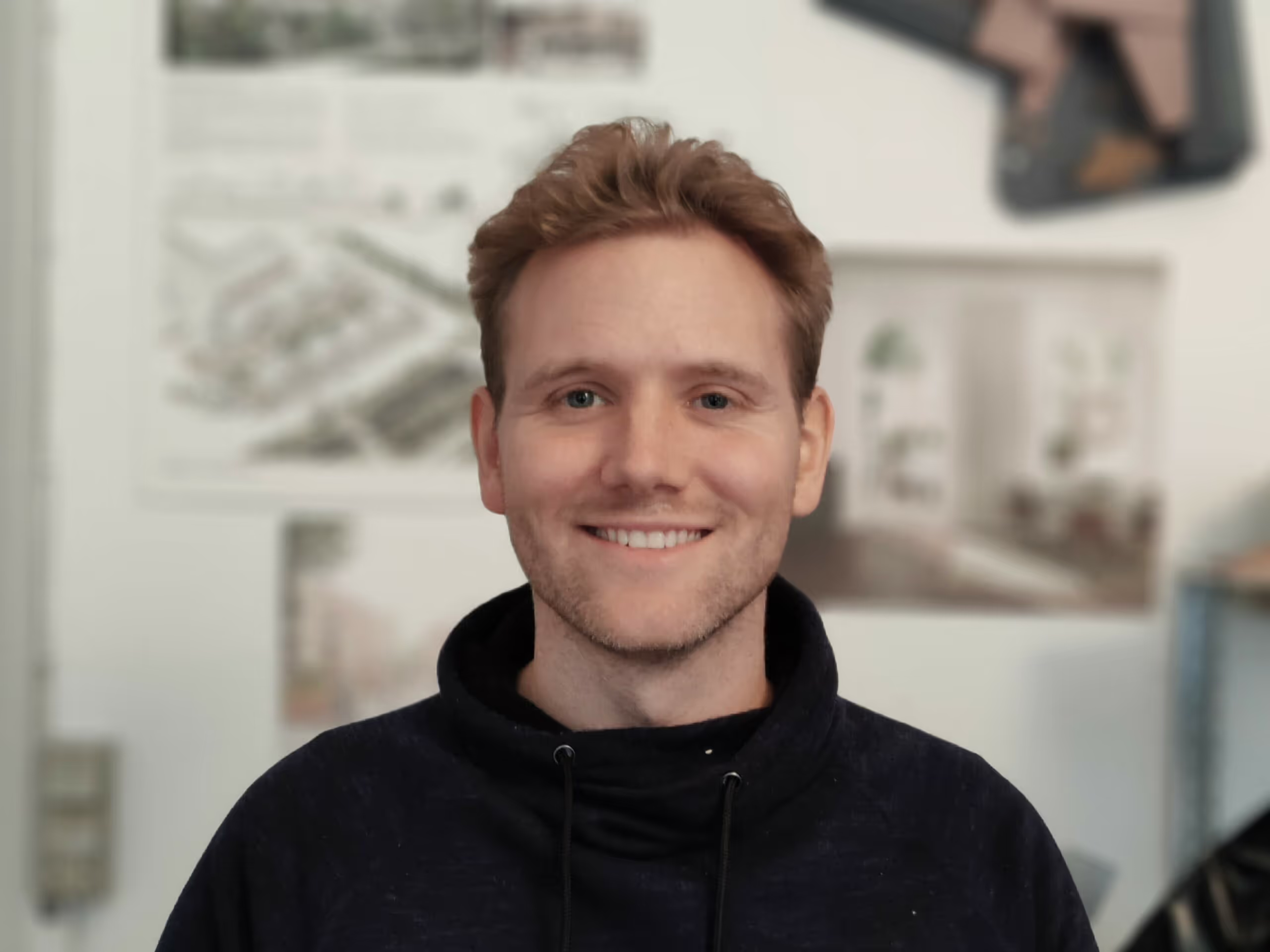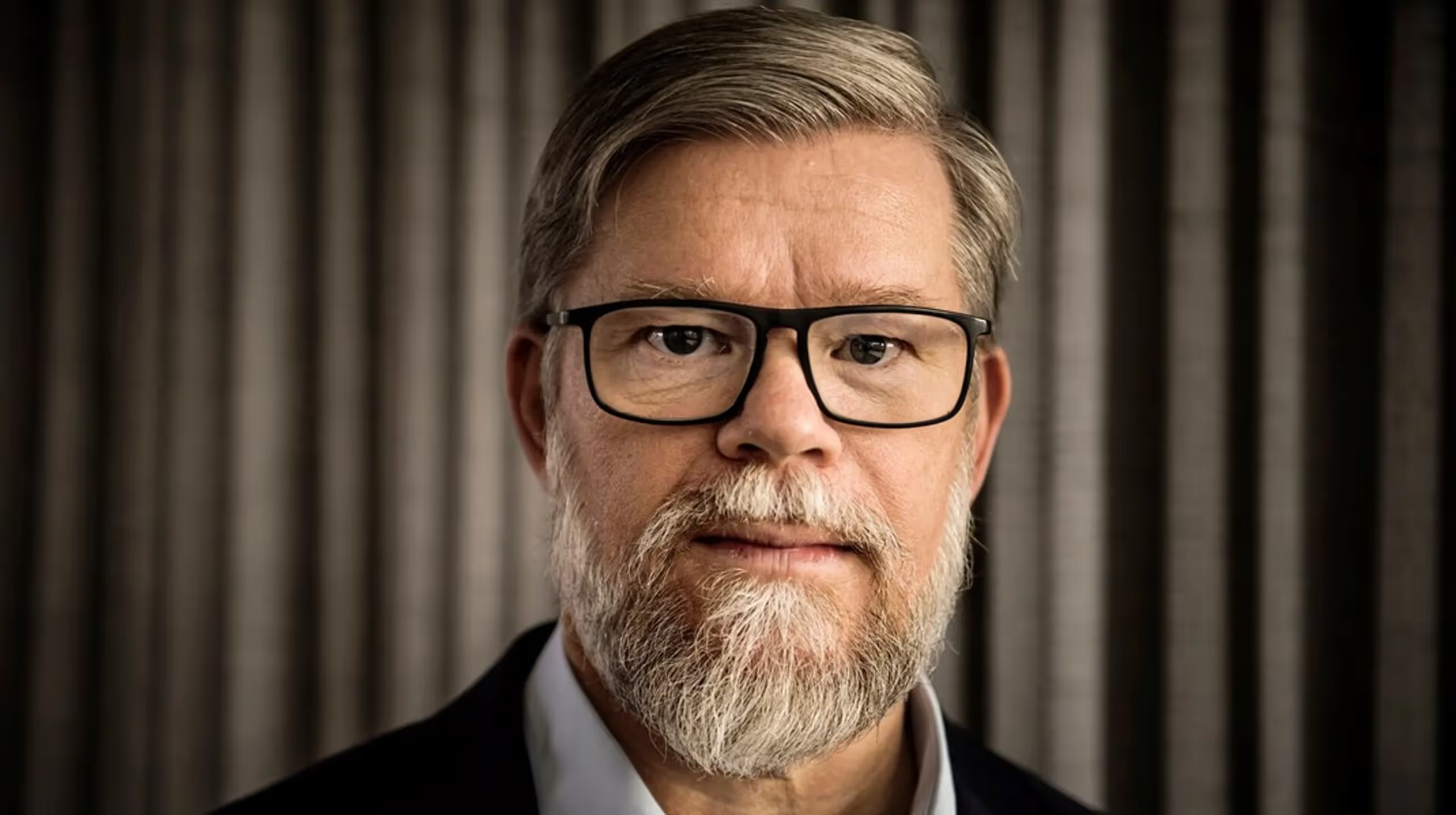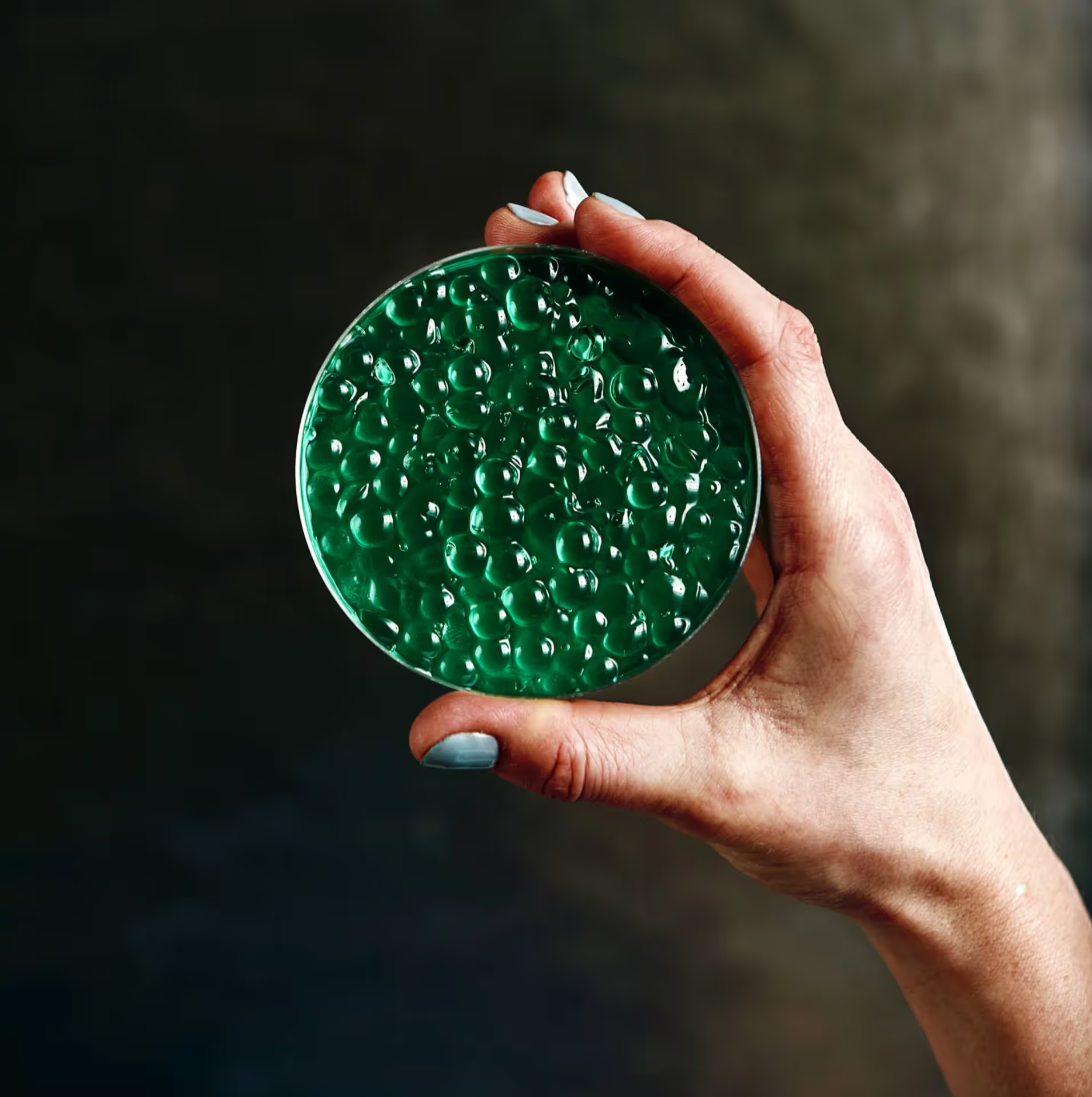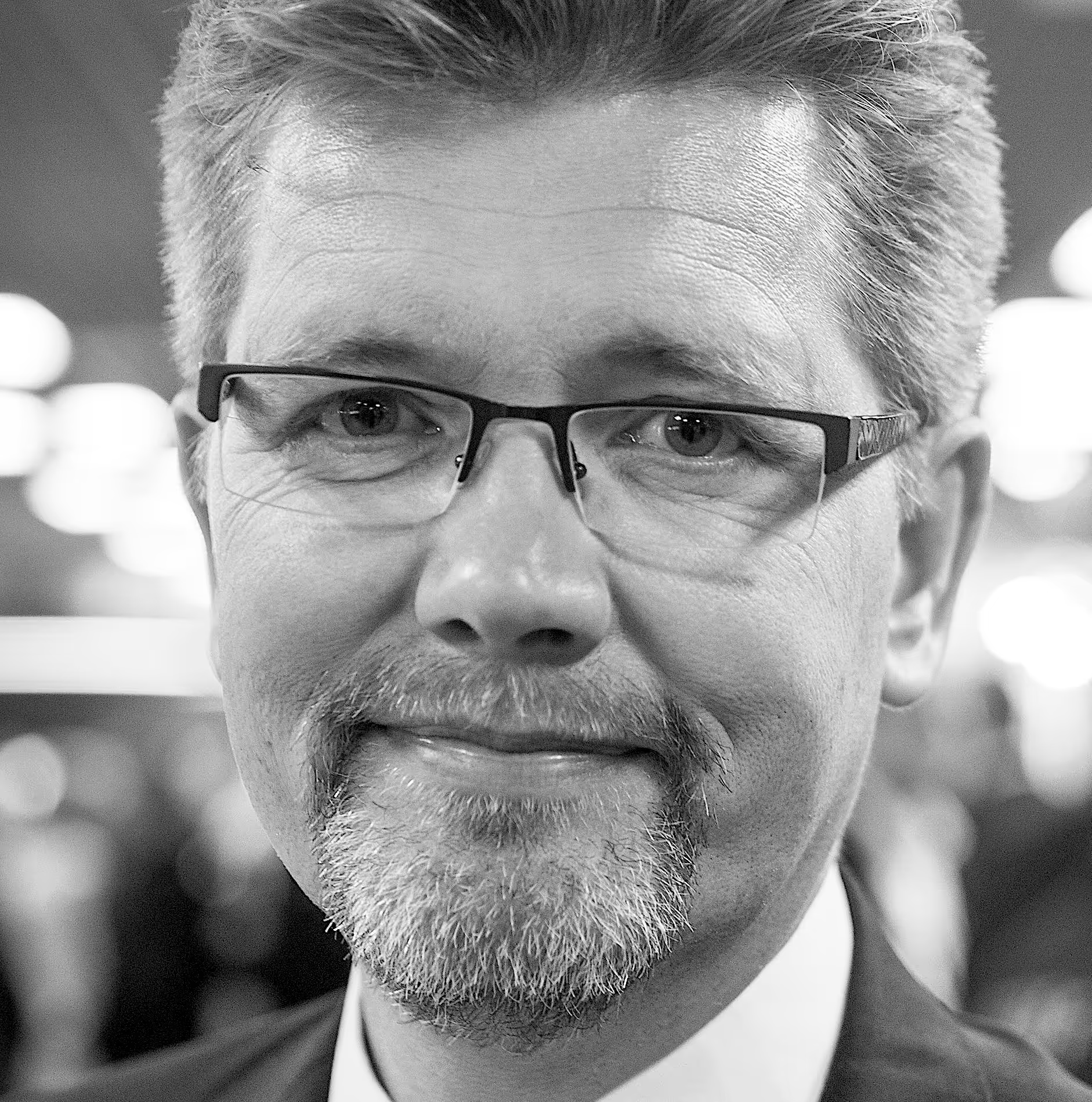“If there’s one thing I want people to know about this place, it’s that nothing here is left to chance. Everything is intentional”
This is Checkpoint, the Copenhagen sexual health clinic run by the Danish organisation AIDS-Fondet, and being tucked away on the 4th floor in a courtyard building on Vestergade, you could mistake it for a regular office space. But here, there are bowls of free condoms and rainbow flags on the walls – because Checkpoint is a targeted offer to young and queer people.
Ditte Maria Bjerno Holst, the head of the clinic, explains how they curate a visit to Checkpoint.
The door is always open as a welcoming gesture. Music is played in the waiting areas to avoid an awkward silence, and the receptionists are instructed to always make the first contact. “We are aware that visiting us might be an uncomfortable experience. There is still stigma around sexually transmitted infections, and HIV particularly. So we try to defuse this stigma by creating a safe and welcoming environment,” Ditte explains.
In the waiting room, you can choose to sit on the sofa, on the bench along the wall, or hide in the nook by the window sill, allowing people to place themselves in the room based on their comfort level. Even if you choose to wait by the table, a bouquet of flowers is placed to obstruct the line of sight – indeed, nothing is left to chance.
“If we sense that someone is uncomfortable and maybe projecting a lot of nervous energy into the room, we have a second waiting room in the back, where they might feel more comfortable,” says Ditte. It is clear that combatting anxiousness, shame and other uncomfortable emotions that could arise from visiting the clinic is something the people working at Checkpoint have not only considered, but are actively trying to mitigate every day.
To understand why visiting Checkpoint might be an uncomfortable experience, we need to understand how the stigma surrounding sexually transmitted diseases is felt and influence our personal health care choices. At the same time, we need to explore how the Danish health care system receives sexual and gender non-conforming people, as well as how these queer people navigate this system. Queerness and illness have been intermeshed throughout history to such a degree that it has influenced queer culture, identity and spatial needs.
The ultimate judgement of free sex
In Denmark today, an estimated 6.800 people live with HIV – and about half of these are men who have sex with men. Thanks to preventive treatments, known as PrEP1, the yearly infection rates are declining, reaching sub-hundreds in recent years. And with a well-treated infection, people diagnosed with HIV can expect to live as long as non-infected people – resulting in a very different situation from the 1980’s and 1990’s.
However, the understanding of the disease has not evolved as quickly in the minds of the general population, as medical advances. Still today, the stigma surrounding HIV is felt by the people being diagnosed, as well as those living with the virus. Did you, for example, know that a well-treated person with HIV cannot transmit the virus, even when having unprotected sex?2
Shame was, and still is, one of the side effects of being infected with the virus. The research project at the University of Copenhagen, CHAD – The Cultural History of AIDS in Denmark, is currently examining how this shame has influenced both the queer community and Danish society. While Danish health authorities have been hailed as being progressive (and relatively successful) in their public education on HIV prevention, they have still not been able to rid this stigma from the disease.3
Last year, history felt like it was repeating itself. In the spring of 2022, an outbreak of mpox (formerly known as monkeypox) started at a Pride celebration on the Canary Islands. By summer, cases were starting to be reported in Denmark too, and a familiar narrative emerged: a new disease was spreading among gay men. The authorities urged gay men to have fewer sexual partners,4 journalists reported on case numbers, and social media was rife with homophobic commentary and fear.5
While being two very different diseases, the societal reaction felt too similar, and “definitely re-traumatised some of the people that lived through the worst of the HIV crisis of the eighties and nineties,” Ditte remarks. Neither diseases are exclusive to men who have sex with men, yet the stigmatisation surrounding them was ultimately homophobic. Contracting these viruses is “(...) somehow seen as the ultimate judgement of free sex,” Ditte concludes.
For many, Checkpoint is the only safe harbour to come with their fears, shame and worries surrounding these diseases. In a society which still has difficulties decoupling queerness from illness, your health can become a stressful and anxious part of your life. Especially when the public health care system is not yet fully equipped to meet you for who you are.
One-size-does-not-fit-all
It is considered one of our greatest post-war achievements: the Nordic model of a free and public health care system. Based on the principle of universality, you have the fundamental right as a resident of Denmark to receive the care you need without any means-tests or out-of-pocket payments, like in most other Western countries. But this model has a hard time adjusting for individual needs, because in the universal model, care should be provided equally (e.i. the same) to all.
“It’s a big misconception that health care can be provided with a one-size-fits-all mindset,” says Ditte. “The idea that if we just treat everyone the same, then we provide the same level of quality and service to all, is not necessarily a bad idea. But we are not all the same, and some might need more care than others.”
Many of the users at Checkpoint tell the same story: their assigned primary-care doctor is unaware, ignorant or dismissive of their health concerns which are related to their queerness. They might provide them with outdated medical advice or base their advice on hurtful stereotypes. This leaves them to become experts in their own bodies – without having a medical degree.
“It can become an extremely exhausting experience – to have to tell your own doctor how you have sex; which tests you think you need; what they should be aware of before examining you,” says Ditte. And at Checkpoint, the feeling is that the queer community as a whole is very knowledgeable about their (sexual) health and knows more about how to protect themselves than their heterosexual peers.
But to acquire this level of expertise in your own body also requires a certain level of health literacy – meaning the ability to find, understand, evaluate and use information regarding their health, as well as the ability to communicate, stick to and act on these decisions.6 People with low health literacy might struggle to keep appointments; for others, it might be difficult to take their medicine as prescribed. But for some, it might just be that their own health care becomes too complex or too overwhelming. And if so, it becomes more and more likely they’ll simply not show up and won’t get tested.
To accommodate this, Checkpoint is working with three types of appointments. “We know that some of our users struggle with keeping appointments, so we offer drop-in testing at all our clinics,” says Ditte. “But some users are busy and prefer to plan ahead and make an appointment two weeks from now.” The third option they call flex-testing: testing outside of opening hours. “For some, the idea of being seen in our clinic is too unbearable, too shameful, and that keeps them from coming. So to accommodate these people, we offer them to make an individual appointment outside of our opening hours, so we can provide the most privacy we are able to.”
Sometimes, people just knock on their door. “Usually, I ask them to come back when we are open, but I can also tell very quickly if this is an emergency – that they, for some reason, simply need to be tested immediately – later is just not an option.”
A trustful space
At its essence, Checkpoint is a sexual health clinic – a place to get tested for and learn about sexually transmitted infections like HIV, chlamydia, gonorrhoea and the like. But everyone working here knows that once the barriers of shame and stigma surrounding these topics have been broken, people become comfortable opening up about so much more. They are used to listening to stories about breakups and heartache, about experiences of homophobia and transphobia, and about bodies hurting from so much more than just STIs.
One example of this is how the people working at Checkpoint have been able to track an increasing trend of chemsex – the combination of recreational drugs and sex, leading to lower inhibitions and limit-pushing behaviours. During the lockdowns, some in the queer community moved the party to private homes, where it is harder to supervise and limit risk behaviours. “And even though the COVID-19 pandemic is effectively over, we still see chemsex as a growing problem in the community,” says Ditte. They are also aware that this is not an issue most assigned doctors will be trusted with, and therefore they actively try to advise and inform whoever might need it.
This is why, when getting tested at Checkpoint, you meet in private rooms – rooms which might feel like a typical doctor’s office at first, but also here, nothing is left unintentionally. “We prefer our testers to feel like a peer which you can trust, so we want to avoid the classic scenario at a doctor’s consultation where you are sitting in different chairs, talking across a desk, and with the doctor facing the computer instead of the patient,” Ditte explains.
Two identical lounge chairs are placed across a small coffee table, and the chairs are even placed at an off-angle to avoid having to face each other head-on, which can not only feel uncomfortable, but even threatening. There’s art on the wall for the eye to rest on, in case the conversation becomes too difficult to keep eye contact. “Everything is intentional.”
Post Notes
Checkpoint has been a huge success, especially after widening their target group from just queer people to also include young people. In 2022, over 12.000 people were tested, twice the amount of tests from the previous year. Despite this, their funding from the Danish government expired at the end of last year, and a precarious situation emerged, with emergency funding and an uncertain future. In March, they announced the closure of their clinics in Aalborg and Odense, a decision which was later reversed, when they at the very last minute, were again added to the national budget. “We know that some people drive over 100 kilometres to use these clinics, instead of using their assigned doctor locally, so these clinics are invaluable,” says Ditte.
It is clear that the Checkpoint clinics are not an unnecessary expense, even as the infection rates of HIV are at an all-time low – because it is exactly spaces like Checkpoint which are part of the success story. And while preventive measures and medical treatments are curbing the outbreaks, there will still be a need for a space for queer people to feel safe to share what might be met with shame elsewhere.
1 PrEP (Pre Exposure Prohylaxis) is a pill that you take daily to prevent HIV infection. The pill acts as an antiviral and prevents HIV from entering the cells and multiplying, thereby reducing the risk of becoming infected by almost 100%. Read more here
2 Hansen, A-B E (7 March 2022) ‘HIV diagnosen stilles - om at leve med HIV’ on Sundhed.dk
3 University of Copenhagen (27 January 2023) ‘Aids ændrede synet på sikker sex og sundhedsoplysning’
4 Braagaard, N (29 July 2002) ‘Abekoppe-kurven går stejlt opad i USA, og WHO opfordrer til færre sexpartnere’ on TV2 Nyheder
5 Mørk, M B (11 August 2022) ‘Kommentarspor om abekopper domineres af hadske beskeder: - Op i røven med den’ on TV2 Nyheder
6 Sundhedsstyrelsen (10 August 2022) Sundhedskompetence i det danske sundhedssystem










(2)Large.avif)











